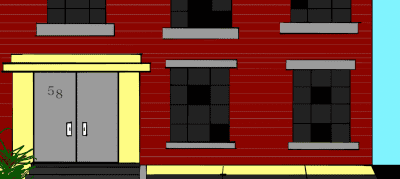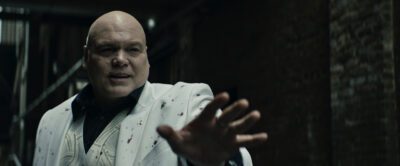Sinkane in concert (Photo by Sean Do)
Sinkane’s ‘love letter to Black culture’
Meet the Sudanese funk rocker who’s churning out the feel-good music you didn’t know you needed
For over a decade, Sinkane — real name Ahmed Abdullahi Gallab — has quietly released a steady stream of Afrobeat-inspired rock and jazzy pop while living in Brooklyn. He’ll probably be here for a while, too, since he described the apartment he and his partner share in Greenpoint as an absolute steal.
“We have golden handcuffs because our apartment is so cheap and it’s so quiet,” he says.
Before making music as a solo artist, he drummed in an array of prominent indie groups, from Caribou to Of Montreal to Yeasayer. His new album “We Belong,” which debuted last week, takes a slight turn into funkier George Clinton territory.
But still present are Sinkane’s signature feel-good vibes, fueled by catchy rhythms and straightforward lyrics (for example, on “Come Together”: “Puzzle pieces on a map, we are more than what we seem/Come together”). A consistent lyrical theme is overcoming the obstacles Black people face all over the world.
“One thing that I wanted to do with this album is kind of explore the American side, more than the African side, because I spent a lot of records really digging into my African identity,” says Gallab, whose parents are Sudanese. “But growing up here, there’s a lot of American identity that exists within me, so I had a really good time exploring all of that.”
He talked to Brooklyn Magazine about the roots of his positivity, the growing popularity of African rock and the process of writing “a love letter to Black culture.”
This interview was condensed and lightly edited for clarity.

Photo by Chloe Morales/Pazant
I know you’ve lived in a variety of places, from Sudan to England to Ohio. Could you give me a brief timeline of how you wound up in this musical life in Brooklyn?
My family’s originally from Sudan. I was born in London, England, because my father was a diplomat for the Sudanese government. We quickly moved back to Sudan. Then in 1989, a military coup overthrew the government of Sudan, and we happened to be in the United States at the time — my dad was studying at Boston University.
So that kind of led us on this interesting journey throughout the United States. We moved to Provo, Utah, of all places, where he went and got a PhD from BYU. Randomly, just a very interesting place for a Black person to live. When my dad got his first teaching job, when I was about 13, we moved to Kent, in Northeast Ohio. That’s where my formative years were, and that’s where I really got into music through the punk and hardcore scene.
In 2006, I went to go see my favorite band, Caribou, in Cleveland. I met him and handed him some of my music. We kept in touch, and later on that year, his drummer randomly broke his wrist falling off of a ladder on tour and they needed a replacement drummer, and he called me to do it. I just started going from one tour to another — I went from Caribou to Of Montreal, who ended at the end of the year playing David Letterman. And that moved me to New York.
What did your early stuff sound like? Not punk, I’m assuming?
The music was really abstract. It was much more free form. I was very much obsessed with Tortoise and Caribou at the time. A lot of drone-y, Pharoah Sanders kind of vibe.
How did your music develop from there?
I remember getting a scrapbook, and I was like, “I’m going to use this to help me get my ideas out of my head.” And I very quickly realized that I have had a pretty wild life experience that has made me inspired by a lot of different seemingly disparate things. And I was like, “This is going to be really fun — on every album, I’m going to explore another facet of myself.”
Was there a moment where you sort of discovered African music that you hadn’t played as much before?
So the first album was like a spiritual, soul, jazz, post rock, drone thing. And then the second one was like a big guitar, psychedelic Pink Floyd album. And then [the third album] “Mars” started getting into more of the African stuff.
Then how would you summarize this new album?
The album is my love letter to Black culture and Black music. When I started working on this album, it was me digging into my favorite modern and old music. I’ve been really inspired by the Black music coming out of the U.K. — the Ezra Collective and Moses Boyd, Michael Kiwanuka, Little Simz, that kind of stuff. Corinne Bailey Rae’s new album. And then modern and old dancehall and reggae from the Caribbean and soul music, funky music, psychedelic rock music and jazz from the United States — Pharoah Sanders and Charles Lloyd.
And as I started listening more to that, and making music that was inspired by that, obviously the Black experience became important in the message that I was trying to talk about. It wasn’t really a coincidence that I started working on this album right around the time that the George Floyd stuff started happening.
I love how all of those artists really talk about that subject matter. They’re very eloquent. They’re very poetic. And it’s very much digestible. It’s easy. It’s not intense. It’s history lesson after history lesson, which is wonderful.
I’m going to un-blur my Zoom screen so you can see the WITCH album on my wall. Do you think between them, Mdou Moctar and others that African rock is having a moment right now?
Now it just kind of feels like it’s coming to the surface, but it’s been around for a long time. It’s interesting now that the media has kind of caught up to the genius of this stuff. I’m very happy that a band like WITCH is getting their resurgence. We actually played with them at a festival a couple of years ago, and it was like one of those moments where I almost cried.
Your music is so saturated with good vibes — do you see your mission as partly injecting a lot of positivity into the world? And where do you get that positivity from these days?
Music for me is like therapy. If you listen to my records up until now, you can really tell where I’m at, in my journey of trying to figure myself out. Sometimes I think about it, like “Goddamn, I can’t believe I’m so vulnerable!” Especially with the last album, you’re really seeing me battle with this like identity crisis that I’m having — the cognitive dissonance that exists within the culture of third culture kids. A lot of people from Sudan my age who are making music talk about the exact same thing. A lot of people of color my age, they sooner or later will come to this crossroads where they feel like they need to talk about their difference from society or how they feel othered.
One thing with me is that all of the music that I am inspired and influenced by, it’s feel good records and feel good music. I look at a person like Sly Stone or George Clinton, who are huge influences of mine, and Sly Stone’s music is so political, it’s so deep and serious. But he does a really great job of showcasing that you can still have fun when you’re talking about this stuff.
You might also like 

























